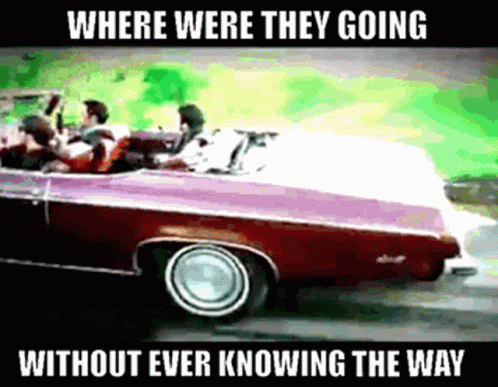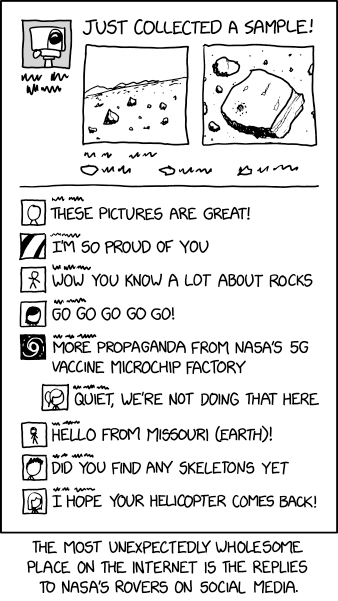Parmandur
Book-Friend, he/him
This is the Way.And now folks can move from totally baseless speculation to arguing over crumbs of knowledge.
This is the Way.And now folks can move from totally baseless speculation to arguing over crumbs of knowledge.
I FEEL A SUDDEN NEED TO TWEET!!!111!!!!

It's nice they let the rover take it's phone with it.Trying to decide if I want to ask Snarf for his twitter handle or if limited contact is better for our relationship.

The real problem is people.What they're not even considering that maybe the problem isn't the price... maybe the problem is capitalism
I just figured out ability scores in 5e almost certainly are as much a game number as simulating anything. That CR 19 critter with the 26 INT has a 26 INT at least in part so its saves and DCs are appropriate for its CR; it's not that much smarter (if at all) than the PCs. That's ... not an easy thing for everyone."The nature of ability scores" seems to be the new "nature of hit points."
"The nature of ability scores" seems to be the new "nature of hit points."
